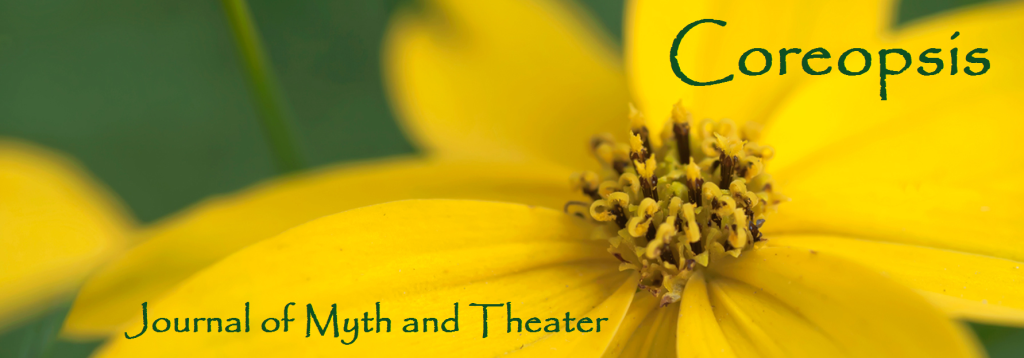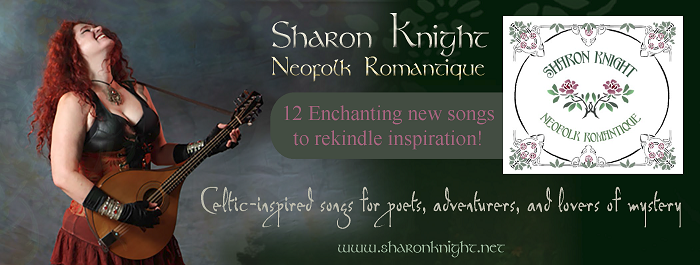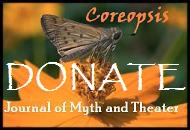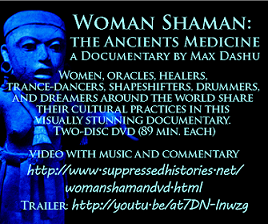
The Problem with Psyche
by Jane Galer
Abstract
Traditional archetypes seem confusing and dated and yet they live on. We struggle over the gender restrictions of the Grail Quest as a ‘Hero’s’ journey. We need to look for new gender indifferent ways to refer to the core elements of the human condition– the struggle to understand the soul and the seeker’s journey. We must ask ourselves why women don’t seem to be able to shed the archetype of the feminine as woman struggling yet unable to act nobly alone, or at the least without the obstacles of her own gender undermining her actions. In this essay, I’d like to consider Psyche’s archetypal tale in light of the Divine Feminine of the 21st century by means of the androgynous messenger of the tarot card The Fool, and the mystery journey that is the Quest for the Grail. Ultimately, the question is, can we replace the archetype of frailty with a Heroine equal to the task?
Psyche had an insurmountable flaw: she was too beautiful. She was so beautiful that she made the Goddess Aphrodite look bad, and what resulted from the ire Aphrodite cast at her was a life of hiding behind masks, a reflective, restrictive world. Psyche was denied the opportunity to stand directly in front of the image of her true love Eros, failed this test of blind love and was then sent on a quest– a quest not of her own making and one which she was incapable of effecting without help along the way. She is the ultimate helpless woman.
It’s very strange that Psyche is said to be the goddess of the soul, elevated to that post by marriage to Eros, whom she could love but not look at. Of course she does look, and the resulting horrors are recounted in many versions of the myth. Most of this is Aphrodite’s fault, a woman on woman crime of passion and jealousy. Aphrodite sets a series of tasks which Psyche must accomplish, but no matter what version of the tale we read, poor Psyche– she’s only a girl– can’t complete a single task without intervention and assistance from various gods and men along the way. What is this telling us? That women are mean-spirited and vindictive toward each other and that a woman alone on a quest of soul won’t manage without a man’s help (or better yet the gods’ help as in Psyche’s case)?
The Grail Quest is the ultimate journey of the soul. It is the life journey of each of us and as long as we are in some degree of synchronicity with the universe, it is the abiding task of our lives. As such it is a personal and elegantly discreet process, one that we each start as a neophyte with the hope that in the end, we can complete the journey of life as a fully awakened and wise human. The major arcana tarot cards are clues to the various stages of discovery of the quest. Through twenty-one cards, each symbolizing a status or life-stage, the individual seeks and attains the wisdom needed to excel at being human. Think of the cards as being representative of the ‘tasks’ set by the gods: they show the mortal human how to survive, how to succeed cooperatively, how to be humble in the face of death and fear, and how to be generously alive. It is a supremely individual and personal process, and yet, we all start as The Fool, the beginner.

The Mythology of The Fool
The Fool is each of us as we step from child to adult and begin to know ourselves and the intimate world around us. The archetypal personalities within The Fool are everywhere in every culture’s literary and oral tradition from the tales of the Ramayana to Mark Twain. The Fool dances along the edge of appropriate behavior, testing and experimenting. There is an element of being unaware of danger. The Fool is the archetypal teenager, all impulse and no forethought. Psyche is The Fool, and yet most tarot cards depict the Fool as an androgynous image because all humans make this journey. Ulysses, the Hero of The Odyssey might be the most well recognized Fool archetype, and there are several, mostly male, from the Celtic mythology that provide us with more depth regarding the quest for the Holy Grail. In an Arthurian depiction of the Fool tarot card, we would interpret the stick with the Fool’s bag of tricks tied to it as the magic wand and the chalice. The Holy Grail, the Chalice, might be seen as our interior chalice, the divine within us all. When we seek it externally, we are looking in the wrong place. The mythic chalice is our spiritual core, our center. For the Fool, it is the collection of sacred and meaningful objects he must have with him to make the journey successful. Success comes from within, not from the assistance of external factors. From the magic wand will come Inspiration with a capital I, the divine knowing, the spark that will lead us to our grand purpose. When we reach for the purpose that takes us into service for the universe, it is indeed grand. The Fool is the fearless traveler, the one on the edge, testing the limits of personal space and ability, the one with high aspirations.
In Celtic mythology, the image of the Fool is accompanied by a black dog and a hen, meaning that as the Fool steps off onto his journey he is accompanied by both god and goddess, the masculine and the feminine. In the mythology of the Welsh texts, knowledge is what is sought. Knowledge rests ultimately deep within us, in the ancient coded information of our birth. The Grail held by the Celtic Salmon of Knowledge is within ourselves, but our journey toward self knowledge always involves external conflict and accidental foresight. Even the creation of this wisdom seems accidental: in the Celtic tale we find the youth given the task of stirring the great cauldron and when he stirs haphazardly, three drops of knowledge splash into his mouth. Suddenly he is no longer the simple child set to stir the soup, now he is the keeper of wisdom and pursued by all others. In his escape, the child takes on the protective guise of many different totem animals, each one bearing a lesson about life and negotiating the journey. (To be fair, there is an abundance of female archetypal presences in Celtic myth that represent wisdom, strength and power.) The archetypal hero’s journey progresses away from the Fool, the neophyte seeking wisdom, and yet always possesses the sacred knowledge, has possessed it all along, it is the Chalice the Grail of the soul. The question is, in the face of myriad challenges along the way, can the hero or heroine keep it? And how exactly is the journey going to progress?
The Problem with Poor Psyche
Once we have uncovered what we know as our personal truth, our bliss as Joseph Campbell would say, we can begin our Hero’s journey. The journey isn’t the search for the answer to the question, “What is my bliss?” We already have that within us. If we peel away the layers, it will reveal itself to us. The journey is the struggle to affect our destiny to its fullest degree, to gather around us the guides who can help us on our path, to refine our purpose so that we can accomplish the tasks before us. If we read about Psyche’s struggles to please the Goddess Aphrodite (Venus) we recognize that most of the tasks set for her are impossible ones, and she doesn’t set them for herself, they are set for her by the gods. We want to avoid what Carl Jung termed the victim – perpetrator way of being. Although there are many messages encoded in the story of Psyche, the one we want to unpack is the progress of her quest. In the tradition of the story, Psyche, as Heroine, is endlessly and irritatingly mortal. She can’t come up with a viable solution to the impediments to her journey on her own. She can’t shake her ‘girl-ness’ in the face of the full power of the woman goddess Aphrodite. At one point, she needs to visit the Underworld in order to ask Persephone for the gift of Beauty to bring to Aphrodite. The only way she can think to get there is to die and so she climbs to a great height in order to throw herself off. Of course a gallant assistant saves her from this mistake. At every turn, Psyche makes the wrong decision and is stopped from following through by all manner of creatures, helpers, and gods. We must then see Psyche as archetypal Victim, dependent, rather than empowered with self-fulfillment and will. The problem with Psyche’s whole story rests in the stance that she represents from the very beginning, that of reactive mortal, not Heroine. She is powerless. Of course we understand that the myth was a cautionary tale originally cast as a model of feminine right behavior for a time long past, but as an archetype for today it fails us. If we peel off the morality tale of an ancient age in which this might be proscribing independence, vanity, or thinking outside the box on the part of women, what are we left with? Not much. In fact, we are left with a chilling image of the skeleton of womankind as helpless and inter-destructive. Not only are we not able to help ourselves, but we undermine the progress we see in others. Is this how we want the myth to work in the 21st century? What about the Hero’s journey from the mortal male aspect? Is the Hero compelled to do battle throughout the cycle? Is there an alternative to might or cunning as his primary aspect? Is the power of the Divine Feminine going to help us, or are we, as humans, doomed to repeat these archetypal tales? Is there an opportunity to re-imagine the classical archetypes wherein they resolve in new and empowering ways for Hero and Heroine?
The Power of a Good Archetype
Joseph Campbell, widely regarded as the premier scholar of mythology of the 20th century, wrote at length about archetypes and how, as Jung defined them, they work on us, within us, even without our knowing. They are ways of reacting to external situations that society cultivates within us from an early age. They are heroes and heroines who teach us how to behave according to the laws of our cultures. Jungian psychology depends upon the interpretation of archetypal behavior as part of its structure of analysis. At what point do we discard an archetype as simply an old fashioned story? Is it possible, in fact, to abandon two thousand years of morality tales simply because they do not fit our current cultural lifestyle? Clearly it is possible, otherwise we would still be worshiping Zeus and Aphrodite. But elements of thought shift and politics provides emphasis to change and suddenly Zeus is out and Jesus and Muhammad are in carrying with them a new set of archetypes. Or are they? Is it our human condition to reinforce that women need help doing whatever task is set for them, and men need to do battle to achieve their goals? Are the ancient archetypes of the known oral traditions from as far back as we can recall any different than some brand new ones (Spider Man, Barbie, Spock, Doctor Who)? These aren’t just characters anymore, they have become archetypal images of something within our culture. But isn’t Barbie our dear Psyche? And what about Cinderella? Isn’t she also Psyche, tormented by the sisters who collectively reflect Aphrodite? Is it possible we simply can’t shake these archetypes?
Let’s take the androgyny of The Fool to heart and allow that there is a hero’s tale and there is a heroine’s tale and for each of us that quest for the Grail lies inside, within the spirit; and it is a personal journey not defined by tasks set by any other person or god. It is inevitable that we each will make that journey, it is not an option, so perhaps the archetype we choose as our mentor, or icon, or guide should be well and carefully– consciously– chosen, for the road is long and inevitably twisted. Start again as the Fool with a new understanding. The Fool is empowered by the idea that caution and fear are not a part of the journey, and while the journey is not optional, where it takes us is entirely of our own design.
Here is a meditation for a new kind of Fool’s Journey:
This journey is your questing as innocence.
You are pure Joy, the glad heart of a new flower,
The expectation of birthday parties, of laughter unbound.
You are ready to take your sacred bundle and step
Step onto the path of destiny.
Even you can save the world. It’s in your attitude
the manner of your coming.
As you walk onto your path feel the wind caress your face
with the blush of new ideas, the tricks of your new trade.
You are the Fool, the Beginner, The Innocent.
With you everything is possible, edges and boundaries are gone.
You are innocence, the place of nothing that is not empty
but is only waiting to be filled.
You are no threat, all possibility and play.
Those who would think you mad do envy you.
Now you will be the perfect circle, time that is not linear
but has looped back on itself to bring you to this moment,
this mystical quest. You are the Beginner again,
birthing new ideas.
You are quick, guileless, blissful.
Spread the wings of your personal grand plan.
Dip into your bag of tricks, your pure potential, what do you find?
With the cleverness of a child unbound, what do you see?
What is your first step?
Where is the sweetness that will nurture you on the way?
You are the element of Air:
Breathe,
inhale,
fill your lungs with simple Joy,
Exhale,
send Joy to the World.
The relevant message, the gift that comes from acknowledging the Divine Feminine, is not that the Hero and Heroine must change places. It is that each individual has a quest to pursue and each must follow the journey through to its most perfect conclusion. For women, the archetype must shift to a self sufficiency equal to the masculine Hero’s journey. The Hero of the Grail Quest doesn’t manage his seeking entirely alone either, all sorts of creatures, kings, witches, and friends help along the way, and he is allowed his feminine frailties, he is allowed to be vulnerable and questioning. We might ask no more than that for the Heroine of the same tale. Is Psyche salvageable? Can we give her a brain and free-will, empathy, intellect, and then empower her with the Divine Feminine? Will that be enough? Or was Jung right that we cannot escape the shadow archetypes, that to some degree we must fail in the face of our own Victim shadow or not be human after all? Is there always going to be a little bit of Psyche in each of us ready to push the Fool off the edge of the mountain?
Jane Galer holds a BA in philosophy and religion from Colorado Woman’s College; MA in material culture, and a Certificate in Museum Curation for Anthropologists from California State University, Sacramento.
An award winning poet, Jane Galer published two books of poetry Too Deep for Tears (2006 out of print)and The Spirit Birds (2012 Poiêsis Press), the memoir How I Learned to Smoke: An American Girl in Iran (2011 Poiêsis Press), the non-fiction work Becoming Hummingbird: Charting Your Life Journey the Shaman’s Way (2011 Poiêsis Press and the novel The Navigator’s Wife (Long Nights Press 2012). She lives in northern California with her family. www.janegaler.com



